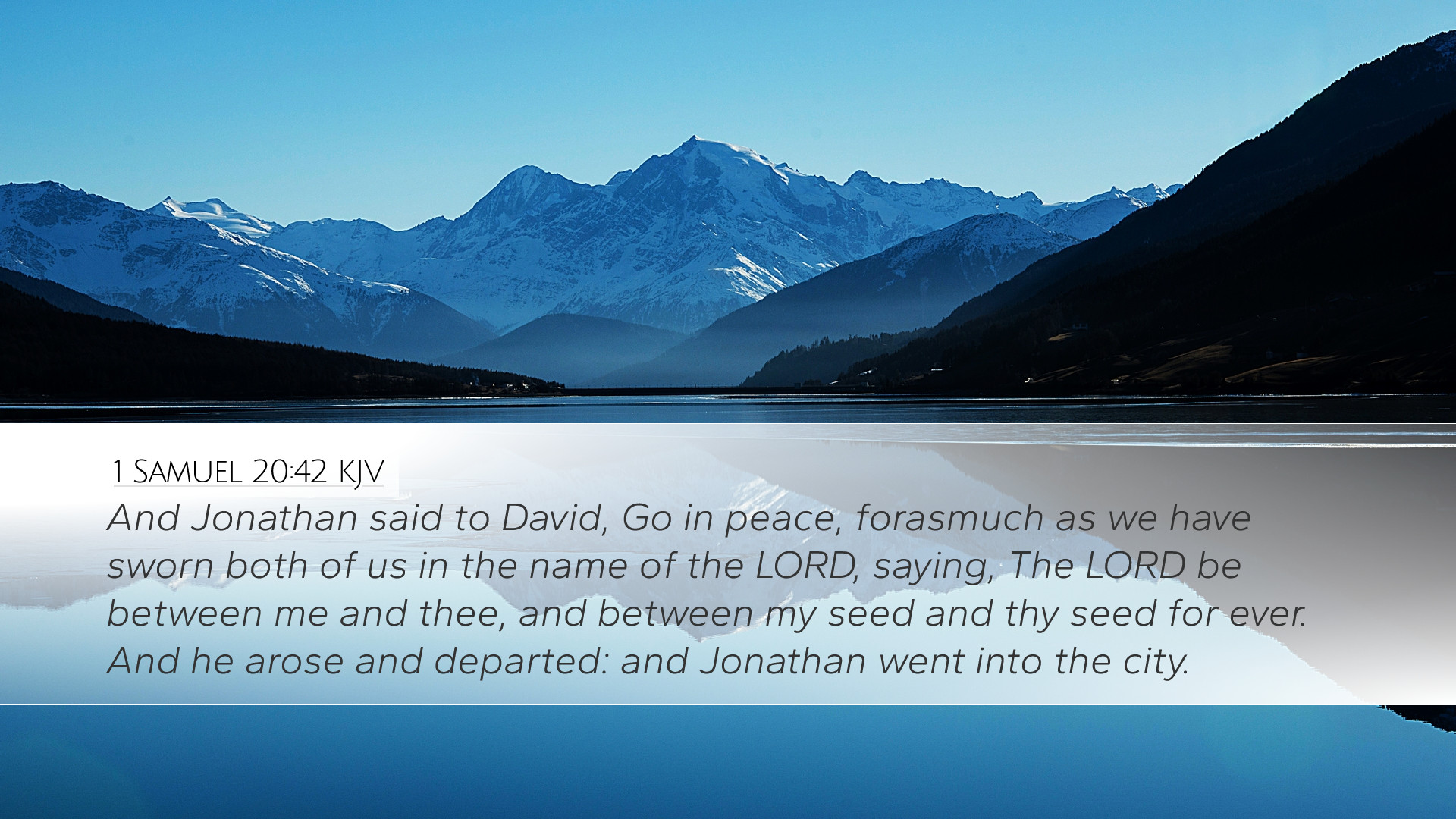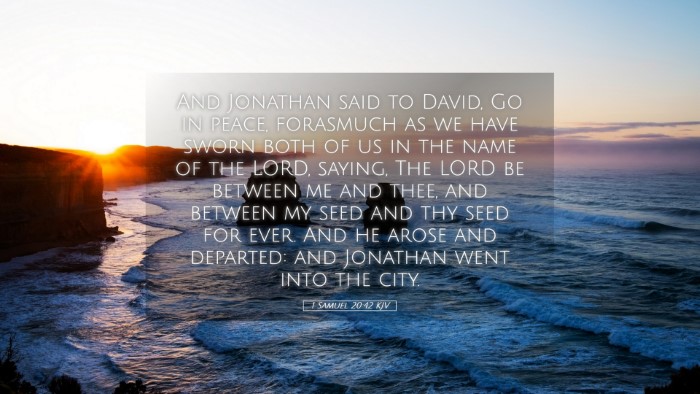Commentary on 1 Samuel 20:42
1 Samuel 20:42 states, "And Jonathan said to David, 'Go in peace, because we have sworn friendship with each other in the name of the Lord, saying, "The Lord is witness between you and me, and between your descendants and my descendants forever."'" This verse encapsulates a powerful moment in the relationship between Jonathan and David, highlighting themes of loyalty, covenant, and divine witness.
Context and Background
The narrative surrounding this verse is steeped in a backdrop of political intrigue, personal loyalty, and the unfolding plan of God. Jonathan, the son of King Saul, has developed a deep friendship with David, who is destined to be the next king of Israel. Despite his loyalty to his father, Jonathan recognizes God's hand on David and chooses fidelity to their covenant bond over familial allegiance.
Key Themes in 1 Samuel 20:42
- The Nature of Friendship: Jonathan and David's relationship is illustrative of true friendship. It transcends societal and familial boundaries, demonstrating that genuine love and loyalty can challenge the status quo.
- The Covenant: Their oath to one another reflects the seriousness of their commitment. This acted as a formal declaration of loyalty amidst the imminent threat posed by Saul’s jealousy towards David.
- Divine Witness: The reference to God as witness emphasizes the spiritual dimension of their bond. It indicates that their commitment is not merely a human agreement but is viewed in light of God’s oversight and purity.
Reflections from Public Domain Commentaries
Several prominent commentaries provide insights into the implications of this verse. Matthew Henry emphasizes the importance of friendship based on mutual respect and the acknowledgement of God’s sovereignty in their lives. He notes that the bond forged between David and Jonathan is an exemplary model of how believers should engage with one another in genuine support and sacrificial love.
Albert Barnes contributes to this analysis by drawing attention to the implications of their oath. He explains that the phrase "the Lord is witness" reinforces the gravity of their promise, marking it as sacred. Barnes suggests that their companionship foreshadows the unity of God’s people, portraying how friendships can serve as a conduit for divine purposes.
Adam Clarke reflects on the broader narrative regarding the turmoil within Saul’s household. Clarke indicates that Jonathan’s act of aiding David was an act of courage in the face of familial betrayal. He sees their bond as a testament to the divine orchestration of events in Israel’s history, highlighting that such relationships are integral to God’s unfolding plan.
Theological Implications
The commitment illustrated in 1 Samuel 20:42 holds profound theological significance for contemporary Christian life. Pastors and theologians can draw from this deep friendship to discuss the nature of Christian community, loyalty, and the pivotal role of divine involvement in human relationships.
Moreover, this verse can serve as a teaching point on the covenantal nature of relationships among believers. It exemplifies how alliances formed in faith can withstand trials, emphasizing the Christian call to uphold one another before God.
Application for Modern Believers
For modern believers, the principle found in 1 Samuel 20:42 can be applied in various contexts—personal friendships, church unity, and even broader community relationships. It encourages individuals to forge connections that are centered on faith and commitment, encouraging believers to act in ways that reflect loyalty and support.
Furthermore, the understanding that God witnesses our commitments invites reflection on how we engage in relationships. It challenges us to maintain integrity, realizing that our dealings reflect our relationship with God and our witness to the world.
Conclusion
In sum, 1 Samuel 20:42 offers rich insights into the complexities of friendship, the power of covenant, and the ever-watchful presence of God in our commitments. By drawing from the wisdom of historical commentaries, we can enrich our understanding and application of this profound verse in our lives and ministries.


